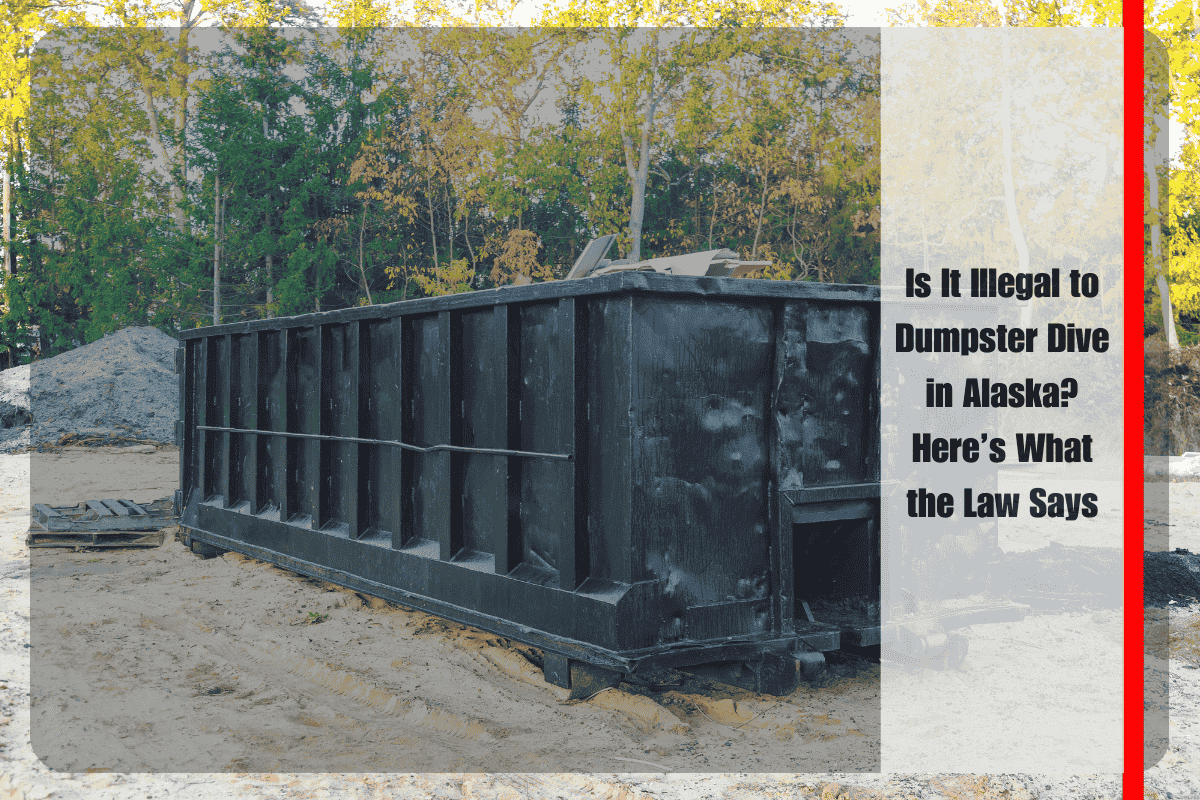Dumpster diving involves searching through discarded items, often from trash bins or dumpsters, in hopes of finding useful or valuable goods. This activity has become popular for environmentalists, bargain hunters, and sustainable living advocates. In Alaska, dumpster diving is generally legal statewide, but local ordinances and property rules must be observed to avoid legal issues. The key legal principle is that once something is thrown away in a publicly accessible location, the original owner relinquishes rights to the item.
Legal Basis and Local Restrictions
The U.S. Supreme Court ruling in California v. Greenwood establishes no reasonable expectation of privacy for trash left for collection, meaning dumpster diving is legal in public areas. However, many dumpsters sit on private property, and tampering with or entering private property without permission is considered trespassing. In Alaska, some cities impose local rules that restrict dumpster access, especially if dumpsters are fenced or locked to prevent unauthorized entries. Divers are advised to respect “No Trespassing” signs and to avoid entering fenced or secured areas without consent.
Safety and Liability Concerns
Dumpster diving carries inherent risks such as injury from sharp objects or exposure to hazardous waste. In Alaska, wildlife like bears may be attracted to dumpsters, increasing safety risks. Property owners sometimes restrict dumpster access to reduce liability from injuries or health hazards. Divers should wear protective clothing and practice caution. Also, criminals sometimes misuse dumpster diving to commit identity theft by retrieving personal information from documents improperly discarded, urging the public to shred sensitive paperwork before disposal.
Environmental and Social Perspectives
Many dumpster divers view the activity as a way to reduce waste and promote reuse, supporting sustainability goals. Whether hunting for food, furniture, electronics, or clothing, dumpster diving can help reduce landfill contributions. However, public perception varies, and some view dumpster diving as a nuisance or health risk, prompting local governments to regulate dumpsters more strictly through screening, fencing, or ordinances.
Practical Tips for Dumpster Divers in Alaska
Those interested in dumpster diving should research local laws, seek permission where possible, and prioritize safety. Avoid forcibly entering locked areas and respect private property boundaries. Use gloves, wear thick footwear, and be vigilant about wildlife encounters. Lastly, protect personal information by carefully managing documents before disposal to deter identity theft. By following these guidelines, dumpster diving can be a legal, rewarding, and more responsible activity in Alaska.
Sources
(https://www.rolloffdumpsterdirect.com/dumpster-diving-illegal/)
(https://worldpopulationreview.com/state-rankings/dumpster-diving-legal-states)
(https://www.muni.org/Departments/OCPD/Planning/Projects/t21/Pages/T21_25.aspx)
(https://moneyworths.com/alaska-dumpster-diving/)
(https://www.legalmatch.com/law-library/article/is-dumpster-diving-illegal.html)7












